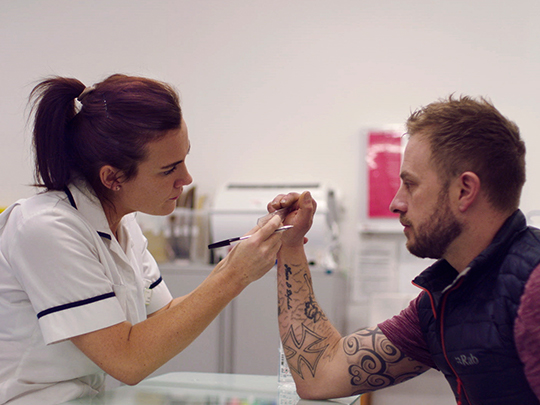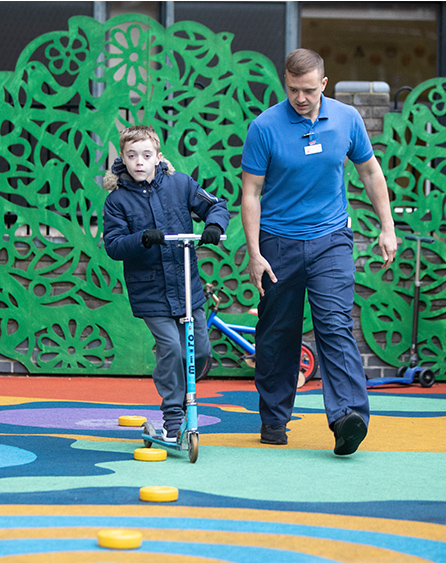
Fiona, Physiotherapist
Physiotherapist
Physiotherapists help manage mobility problems caused by injury, ageing, disability or rehabilitation after an operation. It’s a physical role as you’ll work hands-on with patients to help keep movement flowing.
| Salary range | £24,000+ | |
| Hours | 37.5 hours a week, variable depending on your precise role |
|
| Pattern | Regular hours, with the chance of evening and weekend work for private clients |
![]() Receive £5,000 towards your English university degree. Extra funds of up to £3,000 are also available. Learn more
Receive £5,000 towards your English university degree. Extra funds of up to £3,000 are also available. Learn more
Role details
You’ll work with people on a daily basis, and may recommend exercise, carry out massage, use high-tech ultrasound equipment or even hydrotherapy pools, depending on your clients’ needs.
You may work alone, or as part of a team, and you’ll have plenty of choice of places to work. All through the NHS are departments that rely on physiotherapists including outpatients, women’s health, paediatrics, and occupational health to name just a few. You could also find yourself working in a patient’s home, a retirement home or rehabilitation facilities.
Career options include opening your own practice, specialising in a particular area (say sports injury or elderly care), teaching, research, management roles and more.
Qualities needed

Comfortable with a hands-on approach when working with clients.

A good communicator who can explain conditions and treatments to clients.

Strong organisational and planning skills.

Physically fit – this can be a strenuous role at times.
“I love the caring nature of my role… I find it so rewarding.”
Rachel, Physiotherapist
What makes being a Physiotherapist special?

Help improve people’s mobility, and prevent future issues occurring.

Work with all kinds of people who need all kinds of help, from musculoskeletal issues to medical and surgical rehabilitation.

Work as part of a wider multidisciplinary team at the NHS as well as social care professionals.

Variety of career pathways, from becoming a manager, focusing on research or specialising in a particular area of care.
How to become a Physiotherapist
Degree
A university degree is the most popular way to become a Physiotherapist. Both full-time and part-time courses are available. A two-year accelerated Masters course is also available to students with a relevant degree.
Duration
3 years full time
6 years part-time
Once you’ve successfully completed your degree you must register with The Health and Care Professions Council (HCPC) before you can start practicing.
Entry Requirements
- Five GCSEs (grades A-C), including English language, maths and at least one science.
- Two or three A levels, including a biological science and/or PE.
- Equivalent qualifications:
- BTEC, HND or HNC which includes biological science.
- A relevant NVQ.
- A science-based access course.
- Equivalent Scottish or Irish qualifications.
- A degree or full practicing qualification in a related area.
Application period
There are opportunities to apply throughout the year, with September through to January being the busiest months. During February to October, UCAS Extra and Clearing applications are open, where universities look to fill in any course vacancies.
Keep in mind that individual universities may also set their own deadlines during this period.
Find a Physiotherapy degree using the UCAS Course Finder
Apprenticeship
To train as an Apprentice, you’ll first need to apply for a job with a healthcare provider. As with a degree, once you’re qualified you’ll need to apply to The Health and Care Professions Council (HCPC) to begin practicing and ensure your skills remain up-to-date.
Apprenticeships offer the opportunity to earn while gaining a qualification. Your employer and the government will pay the tuition fees for your apprenticeship, meaning apprenticeships are not eligible for student finance.
Vacancies can be found on the NHS Jobs website and Find an Apprenticeship website
and Find an Apprenticeship website

Adam, Physiotherapist
